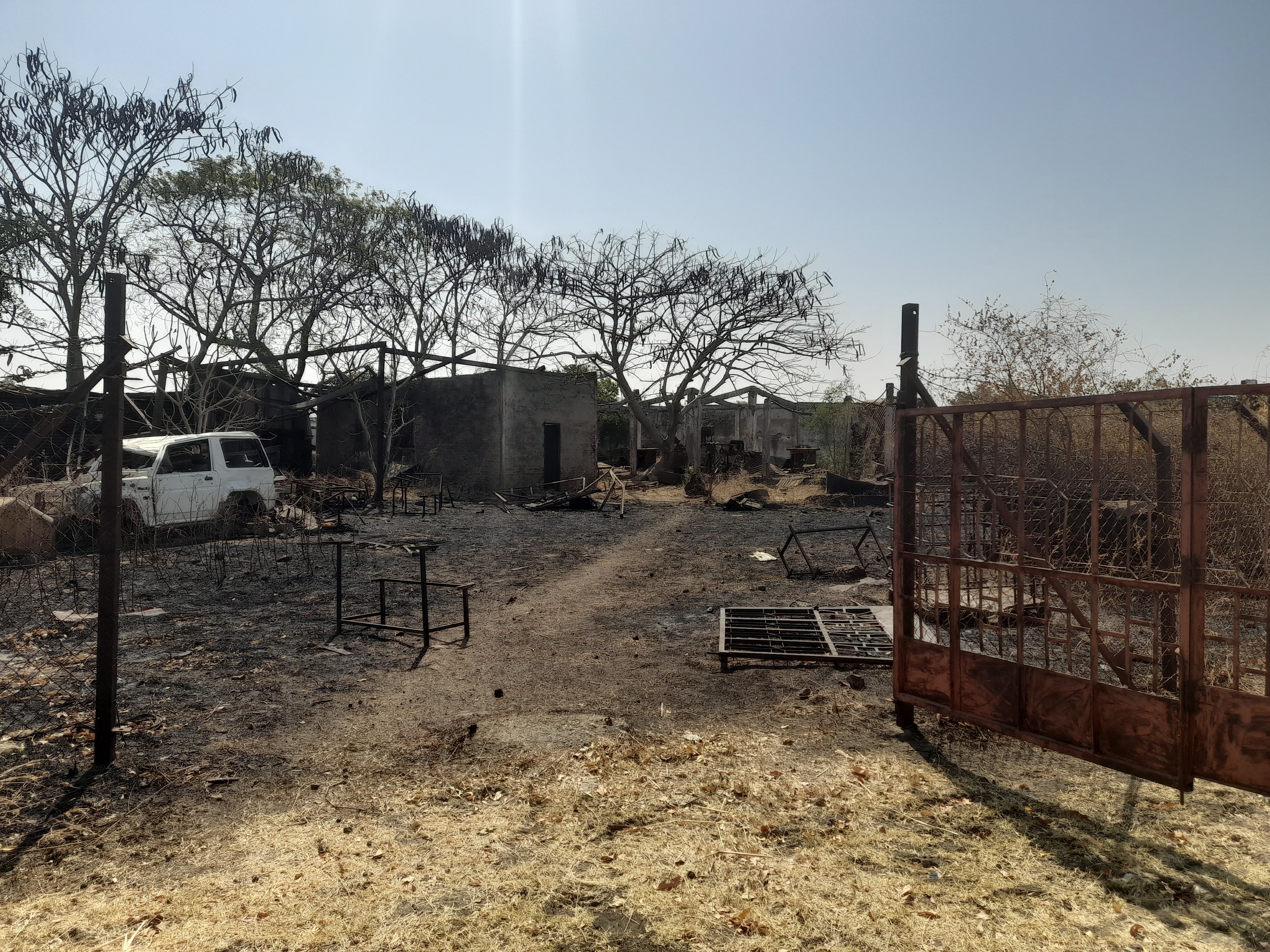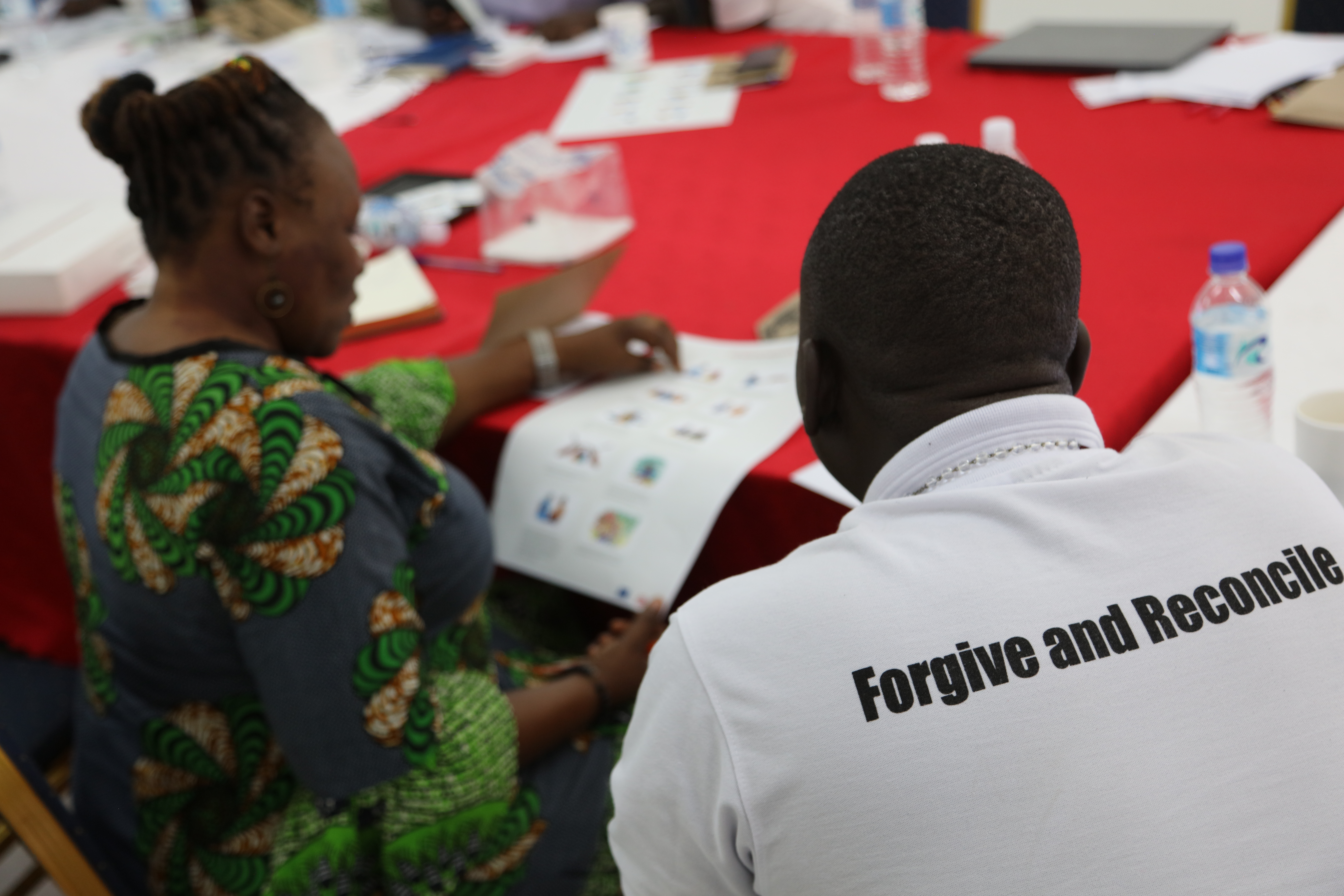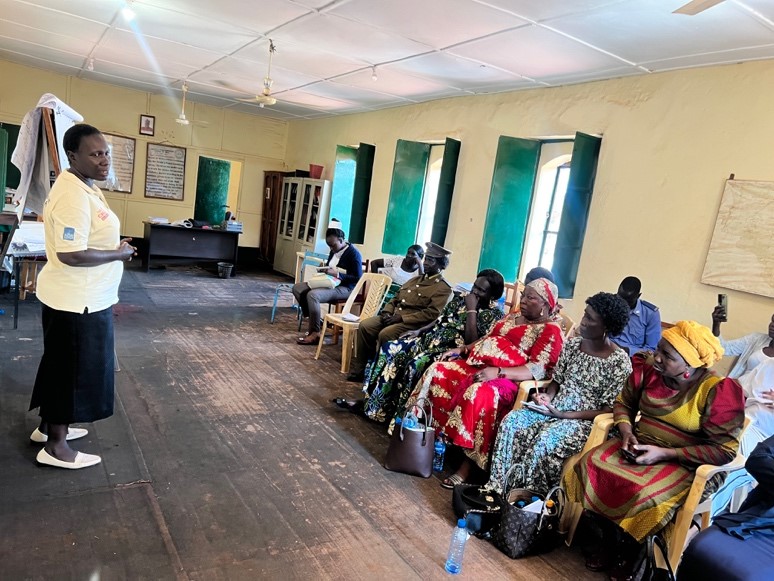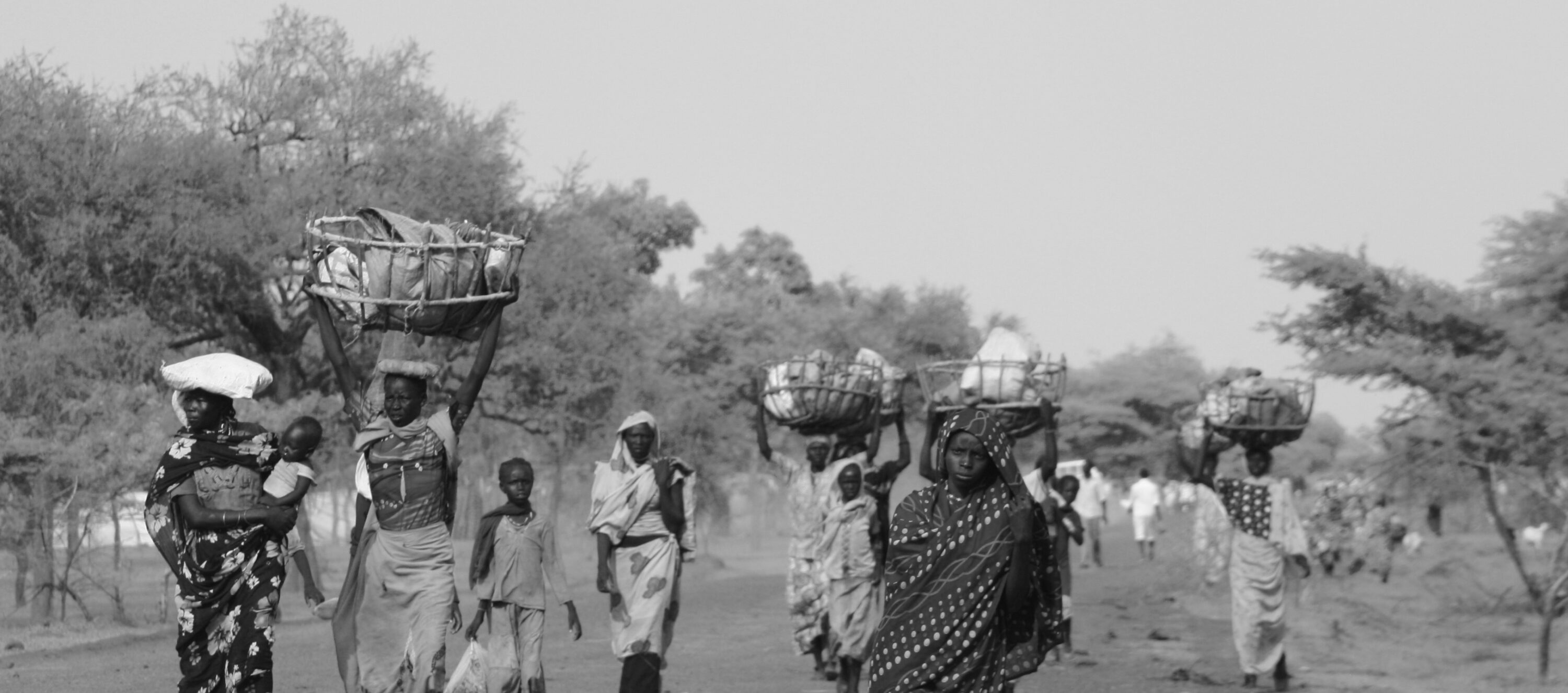
South Sudan
LAW launched its programme in South Sudan in 2014 working with survivors, partners and justice institutions to pursue justice for human rights violations. With five national partners, LAW now provides legal information, assistance and representation to victims and survivors of gender-based violence and discrimination, supports domestic efforts for the creation and implementation of gender equality legislation, advocates for the creation of transitional justice mechanisms and provides technical support to local actors to improve the access to justice of survivors of crimes committed during the conflict.
History and overview
The context in the country
South Sudan gained its independence from Sudan in July 2011. By December 2013, a conflict started in the world’s newest state between President Salva Kiir and Vice President Riek Machar. Machar fled his official post and the capital along with loyalist forces, forming an opposition to Kiir’s national military, the Sudan People’s Liberation Army-In Opposition (SPLA-IO).
In August 2015, Kiir and Machar signed a peace agreement, ending months-long fighting between the main parties.
On 7 July 2016, the Kiir-Machar peace deal collapsed completely as violence between the SPLA and the SPLA-IO spread across Juba, resulting in a large number of casualties and displacement of thousands of people in the months to come, either internally or in the borders with neighbouring countries, mostly Uganda.
The conflict officially concluded on 12 September 2018 with the signature of the Revitalised Agreement for the Resolution of Conflict in South Sudan (R-ARCSS or just “peace agreement”), which set a an eight-month pre-transitional period and a thirty six-month transitional period.
Given the very limited progress in the implementation of the R-ARCSS, in August 2022, a roadmap on the extension of the transitional period up to 22 February 2025 was adopted, including new dates for the objectives of the R-ARCSS to be met. Among them, national elections are expected to take place in December 2024.
According to the Humanitarian Response Plan for South Sudan 2023, an estimated 9.4 million people in South Sudan, including 2.2 million women, 4.9 million children and 337,000 refugees, are projected to need humanitarian assistance and protection services in 2023. In its report published in January 2023, the UN Commission on Human Rights in South Sudan (CHRSS) particularly insisted on the persisting localized violence and its political nature.
According to UNHCR, as of August 2023, Uganda, which is the neighbouring country receiving the largest numbers of refugees from South Sudan, hosts 893,925 South Sudanese refugees.
Legal context and legal needs
Among the provisions of the peace agreement, Chapter V sets out the transitional justice mechanisms to achieve accountability, reconciliation and healing through the Commission for Truth, Reconciliation and Healing (CTRH), the Compensation and Reparations Authority (CRA) and the Hybrid Court for South Sudan (HCSS).
Some progress has been made in the creation of CTRH and CRA, but the mechanisms have not yet been established by the beginning of 2024. The creation of the third transitional mechanism provided for in Chapter V, the Hybrid Court for South Sudan (HCSS) is still significantly delayed with no concrete steps towards its establishment. There have been no concrete actions for accountability for the crimes committed during the conflict and in its 2023 report, the UN CHRSS highlighted “the prevailing climate of impunity for gross human rights violations in South Sudan, including those amounting to serious crimes, for which in many cases public officials and military officers bear responsibility.”
The challenges of the legal context and the subsequent legal needs arising do not stop there. Discussions on key gender equality bills have been ongoing for years, including the Anti-GBV bill, the Family Law bill, the Affirmative Action bill and others, and the content of some of these draft has been heavily criticised. The need for in-depth expert consultations and deliberations with affected groups is more present than ever.
Furthermore, application of the existing laws in South Sudan presents its own challenges. South Sudan has never applied the Geneva Conventions Act 2012, domesticating the Geneva Conventions and allowing for adjudication of war crimes domestically, while application of ratified international human rights treaties, according to the transitional constitution, remains very limited. The need for advocacy for the implementation of existing legislation and technical assistance to justice actors, and of dissemination of legal information in particular in rural areas, remains imperative.
LAW rationale for intervention
In this context, LAW considered it paramount intervening. The rationale behind this was and continues to be to advance justice efforts for GBV and CRSV survivors through legal aid, advocacy and technical assistance to relevant actors.
LAW started working on South Sudan in 2014. Along the years, the interventions have adjusted to the context developments and the priorities have shifted according to the assessment of needs of the people LAW works with, mainly the survivors we represent and the civil society we support through partnerships and ongoing technical assistance. The current interventions have various objectives, namely bringing justice and redress to GBV and CRSV survivors through legal aid in domestic, regional and international fora; conducting strategic advocacy for legislative priorities and for having laws and practices that meet the needs of the survivors; and providing technical assistance in order to support civil society, local lawyers and other actors in the implementation of the laws applying in South Sudan.
Ongoing projects
I. Gender-based violence and gender equality: “Reducing inequality and gender-based violence in South Sudan”
Since 2021, LAW works with its national partners on increasing access to justice for gender-based violence victims and survivors through the provision of legal aid, and advocacy and technical support for the implementation of gender equality legislation. In 2022, LAW and its partner opened three legal aid clinics, named Justice Confidence Centers (JCC), in Juba in Central Equatoria, Wau in Western Bahr el Ghazal, and Malakal in Upper Nile. Seven lawyers and legal officers are deployed to provide legal information, assistance, and representation to victims and survivors of gender-based violence and discrimination. Since the opening of the clinics, the lawyers have received extremely grave cases. They have represented women detained on accusation of adultery, prevented forced marriages or obtained divorces for victims, obtained the release of a woman detained after she had been raped and of another with a disability who was detained without charges. They also assisted and represented rape victims including very young children, girls pregnant as a consequence of a rape, and more.
The JCC have allowed LAW and its partner to identified gaps in the law, leading to the preparation of public interest litigation cases and the implementation of targeted and civil society-led advocacy strategies. LAW is one of the leading organisations involved in civil society consultations on the review of the anti-GBV bill draft, and published red-lines [link] endorsed and used to support advocacy by four South Sudanese civil society organisations as well as by UNFPA. In addition, LAW led a technical committee mandated by the Ministry of Gender and Social Welfare on the domestication of the Maputo Protocol and published an easy guide to the protocol for country-wide dissemination [Available in English and Arabic].
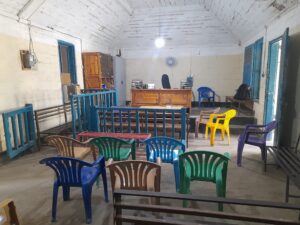
Mobile court in Malakal, South Sudan, 2022
II. Transformative justice: “Supporting the participation of women in transitional justice mechanisms to contribute to sustainable peace in South Sudan, Somalia and Ethiopia” and “Truth and Justice for Survivors”
Historically, LAW has worked in South Sudan to support survivors of human rights violations and abuses as they participate in the creation of transitional justice mechanisms. Through LAW and its partners, 12 survivor advocates are accompanied to get involved in decision making processes, and six survivor groups are undertaking truth telling and memorialisation activities.
LAW has represented 35 survivors to send a communication to the Committee on the Elimination of Discrimination against Women (CEDAW). LAW now advocates for a policy change in CEDAW and the Treaty Bodies to improve the protection of victims who face real threats of retaliation if their names are disclosed to the State concerned. Over the years, LAW also made submissions to the Committee on the Rights of the Child and CEDAW on the situation in South Sudan.
With regards to domestic accountability efforts, LAW is implementing advocacy strategy for the implementation of the Geneva Conventions Act 2012, which allows the domestic adjudication of war crimes. LAW provides technical support to the Judiciary and Ministry of Justice to increase its capacity to prosecute and adjudicate international crimes. In March 2023, LAW published Q&As to support discussions on their implementation [Available in English and Arabic]. Since 2022, LAW is supporting women-led civil society organisations and women lawyers through technical assistance to lead initiatives to hold the state accountable to its international commitments, building strong partnerships and creating durable trust relationships in the process.
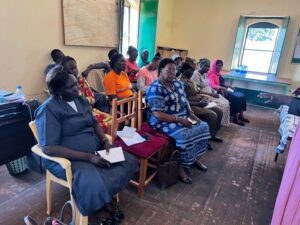
Training in Wau, South Sudan, 2022
Closed projects
From December 2018 to June 2022, LAW implemented a project designed to respond to gaps on the engagement and prioritisation of women’s rights in the ongoing peace and transitional justice processes, and the lack of support and redress for survivors of conflict-related sexual violence. The project sought to meaningfully implement UN Security Council Resolution 1325 on the Women Peace and Security (WPS) Agenda in South Sudan, through a twin approach of empowering South Sudanese women to engage with transitional justice mechanisms and reducing impunity for conflict-related sexual violence. The project focus areas were Nyal, Ganyel and Bentiu in Unity State, Yei and Juba in Central Equatoria, Wau in Western Bahr el Ghazal and Bor in Jonglei. Through this project, 675 of women and targeted communities beneficiaries reported feeling confident in engaging with transitional justice mechanisms once implemented, 422 civil society members and lawyers participate in activity to support their engagement with institutions about the implementation of the WPS Agenda, and 337 cases of gender-based violence were documented.
From 1 January 2020 to 31 March 2023, an ambitious project aimed at addressing the gaps identified in securing access to transformative justice for South Sudanese victims of human rights violations was implemented with the support of four international and national organisations. The project’s overall objective was to contribute to the rule of law and sustainable peace by increasing accountability. LAW and its partners represented 46 survivors and victims of crimes over the course of the project, giving them a space to share their stories and demand accountability. The project built the capacity of over 100 individuals, including lawyers, members of civil society organisations, survivors, and investigators, prosecutors and judges, thus enhancing the quality of the justice process for survivors and victims of crimes and mainstreaming the sustainability of the project. Finally, the project partners became central actors in the transformative justice landscape of South Sudan, and brought together key stakeholders, closely engaged with survivors, and used their platform to increase national, regional, and international support for accountability in the country.
Research projects
- LAW, The Nuhanovic Foundation, SSLS, “Accountability for Sexual Violence Committed by Armed Men in South Sudan”, South Sudan, May 2016
Statistics
- 5 partners in 2023, 8 over the past 5 years
- 3 legal aid clinics operated by 7 lawyers and legal officers in Wau, Juba and Malakal.
- Legal assistance and representation was provided to 124 individuals in 2023 in domestic cases of rape, forced marriage, arbitrary detention, adultery, domestic violence and divorce, inheritance and child custody. 218 individuals received legal aid in total since the opening of the JCC in April 2022.
- 36 survivors of international crimes committed during the conflict are currently represented. Represented 45 in total over the past five years.
- 28 lawyers, civil society organisations and other justice actors trained and mentored in 2023. 401 in the past 10 years.
In the press
- Reference to the CEDAW communication was made in the UN CHRSS report published on 20 February 2019, Available at A_HRC_40_CRP_1.docx (live.com) para 404
- Antonia Mulvey was cited in the Amnesty international press release after the Terrain hotel case appeal disappeared, September 2019: https://www.amnesty.org/en/latest/press-release/2019/09/south-sudan-missing-file-blocks-justice-for-terrain-hotel-rapes-murder/
